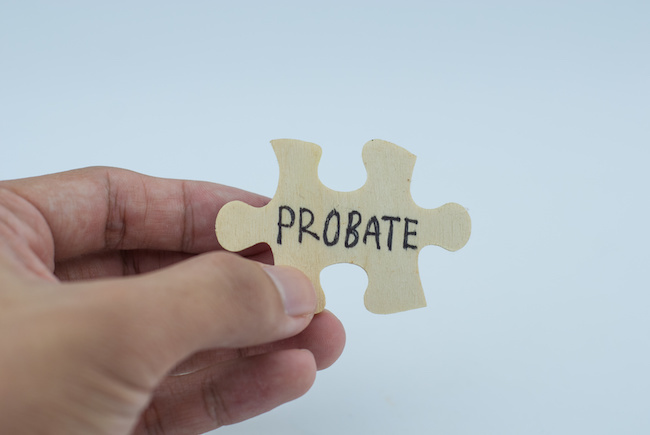Understanding Probate

When a family member dies in the midst of all the confusion and grief the person named as Executor or Executrix of the Will could be plagued with some additional questions. “Do I need to probate the Will?” Sometimes even “Is there a Will?” Then “If there is a Will, where is it?” “If I do need to probate the Will what are my responsibilities regarding other beneficiaries?” “If there is no probate, are there any other responsibilities?”, “Do I need to involve an attorney?” “If so, what does the attorney do?” Also, as to an Executrix or Executor living out of the area the question can arise “How much time does this take?” “Do I need to stay in the area to settle the estate?” “What is the cost?”
Well, the answer to all of these questions as to so many directed to those who practice in elder law and estate administration is “it depends.”
To the first question “do I need to probate the Will?” the best answer is to pull everything you have together and then consult an elder law/estates attorney with specific experience to find out. Sometimes a spouse comes in and we drink coffee, review the assets, and complete beneficiary forms for IRA’s, 401(k)’s, and life insurance and that is it. That can be a simple estate.
This simplified process is possible because, for example, for federal estate tax purposes spouses, regardless of the size of the estate, have an unlimited marital deduction and therefore do not pay federal estate tax. Pennsylvania also has a 0% inheritance tax rate for spouses. Bank and brokerage accounts and the residence are routinely jointly titled and a wife or husband is usually the beneficiary of life insurance and retirement accounts.
So why go to an attorney if you are a spouse and there is a non-probate estate? First, sometimes there are loose ends. You might have missed something. Second, you may want to redo your own estate documents. There are elder law attorneys located in San Diego that one can consult to get things done fairly.
The preliminary way to know if there is a probate estate is to ask if the decedent died with assets in his or her name alone. This typically happens when both parents die and the adult children are the survivors. If this is the case and the assets are not jointly titled or with beneficiary designations, you likely have a probate estate. You still need to file an Inheritance Tax return even if non-probate.
Probating a Will means taking it to the Register of Wills office in the county where the decedent resided at the time of his/her death and recording it but it is so much more. It places a responsibility on the Executor/Executrix to “well and faithfully administer the estate.” It means you are responsible for seeing that necessary taxes are paid and distributions made according to the Will.
If you hire an attorney to represent you and, frankly in most cases you should, the attorney’s name and ID number are associated with the file and the attorney is also responsible for the estate. You are both fiduciaries and the attorney can help.
For Pennsylvania purposes even for non-probate assets going to someone other than the spouse you need to file an Inheritance Tax Return and to pay from the estate the designated amount.
Here are some ways an attorney can help.
- If you live at a distance or out of state, an estate attorney can handle much of the paperwork and help you to deal with the estate even if necessary at a distance. You just need to be present in the County of filing to be sworn in.
- The attorney can advise you whether and when you are entitled to an Executor’s fee and give you an approximation of the amount so that you do not need to serve without being paid.
- An attorney can advise regarding discounts available (such as 5% discount if payment is made within three months of the date of death.)
- An experienced estate attorney can advise how to handle distribution of personal belongings to minimize disagreement.
- An experienced estate attorney also experienced in real estate can help coordinate the sale of the house, have contacts with realtors or, if no realtor is involved, draft the necessary paperwork, and attend settlement;
- An experienced estate attorney can help you deal with disagreements regarding payment among beneficiaries and assume responsibility for the accuracy of final distributions.
About the Author Janet Colliton
Esquire, Colliton Law Associates, P.C. Janet Colliton has practiced law for over 38 years, 37 of them in Chester County, Pennsylvania, a suburb of Philadelphia. Her practice, Colliton Law Associates, PC, is limited to elder law, Medicaid, including advice, applications and appeals, and other benefits planning including Veterans benefits, life care and special needs planning, guardianships, retirement, and estate planning and administration.
